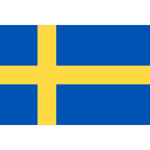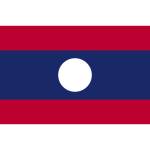Blog
Why Study in Canada?
Canada, celebrated for its diverse population and breathtaking natural beauty, stands out for its exceptional education system. Located in North America, this vast nation offers international students a chance to immerse themselves in a culture that blends modernity with magnificent landscapes. As the world’s second-largest country by area, Canada is divided into ten provinces and three territories, each boasting its own unique culture and attractions. Whether exploring the lively urban centers of Toronto, Montreal, and Vancouver or enjoying the quaint coastal towns and scenic mountain vistas, Indian students in Canada can look forward to a wide array of enriching experiences.
One of the main attractions for Indian students choosing Canada is its outstanding education system. Canadian universities and colleges are globally recognized for their academic rigor, cutting-edge research, and dedication to delivering high-quality education. Whether you’re interested in engineering, arts, business, or any other discipline, Canadian institutions provide a wide variety of programs tailored to meet your interests and career ambitions.
Additionally, Canada is celebrated for its welcoming and inclusive society, making it a safe and friendly destination for students worldwide. Canadians’ embrace of multiculturalism and diversity fosters an environment where cultural exchange is encouraged, and different traditions are celebrated. As an international student, you’ll have the chance to engage deeply with a rich culture and forge lasting friendships with people from various backgrounds.
As you embark on your educational journey in Canada, be ready to immerse yourself in a nation that values education, cultural diversity, and natural beauty. Experience the warmth of Canadian hospitality, broaden your horizons, and create lifelong memories.
Benefits of Studying in Canada for Indian Students
Canada presents numerous reasons for international students to pursue higher education within its borders. It is a land of opportunities, offering pathways for students to grow and develop significantly. Canadian higher education institutions emphasize career-oriented courses that provide extensive practical knowledge. Additionally, internships and co-op placements are integral parts of Canadian study programs, equipping students with the confidence to enter their professions.
Canada boasts 15 research universities, 100 public universities, and 86 private universities, all contributing to academic development. Community colleges are also available for those pursuing diploma degrees, ensuring students receive quality education regardless of their chosen path. The primary difference between academic and diploma degrees lies in the tuition costs and the duration of study.
International students in Canada have a wide array of educational options. Canadian universities and colleges offer post-secondary diplomas, post-secondary certificates, post-graduate certificates or diplomas, short-term training and crash courses, skills trade training, preparatory courses for professional license exams, bachelor’s degree programs, and training in English or French as a second language. As a Canadian international student, you have diverse opportunities to achieve your higher education goals.
Canada is renowned for its exceptional education system and the wide range of courses and degrees it offers. These courses are available at three main levels: Undergraduate, Graduate, and Post-graduate.
Undergraduate Programs
At the undergraduate level, students can enroll in a Bachelor’s or Associate’s degree program. These programs typically last for 3 to 4 years.
Graduate Programs
Graduate programs include Master’s and Doctoral degrees, with a duration ranging from 2 to 6 years.
Post-graduation Programs
Post-graduation courses in Canada are usually diploma courses that last for 1 to 2 years.
Canadian higher education institutions emphasize Experiential Learning, a method that enables students to apply theoretical knowledge in practical settings, thus gaining hands-on experience and developing expertise in their fields.
Undergraduate Programs
At the undergraduate level, students can enroll in a Bachelor’s or Associate’s degree program. These programs typically last for 3 to 4 years.
Graduate Programs
Graduate programs include Master’s and Doctoral degrees, with a duration ranging from 2 to 6 years.
Post-graduation Programs
Post-graduation courses in Canada are usually diploma courses that last for 1 to 2 years.
Canadian higher education institutions emphasize Experiential Learning, a method that enables students to apply theoretical knowledge in practical settings, thus gaining hands-on experience and developing expertise in their fields.
Popular Courses for International Students in Canada
Here are some of the courses that are highly preferred by international students:
- International Business Management
- Master of Business Administration
- IT & Computer Science
- Engineering
- Health, Biosciences, and Pharmacy
- Media & Journalism
Average Annual Tuition Fees
| Course | Average Annual Tuition Fee in CAD |
|---|---|
| International Business Management | CAD 15,000 – 25,000 |
| Master of Business Administration | CAD 30,000 – 40,000 |
| IT & Computer Science | CAD 20,000 – 40,000 |
| Engineering | CAD 30,000 – 50,000 |
| Health, Biosciences & Pharmacy | CAD 30,000 – 50,000 |
| Media & Journalism | CAD 20,000 – 30,000 |
Considering the affordability and quality of education in Canada, it’s an excellent destination for pursuing higher studies. Start your journey today and explore study opportunities in Canada with expert guidance from Flying borders counselors.
For More Information .....
Modal Title


 Canada
Canada Luxembourg
Luxembourg Uk
Uk Finland
Finland Ireland
Ireland Sweden
Sweden Italy
Italy Australia
Australia Dubai
Dubai Laos
Laos Armenia
Armenia Newzealand
Newzealand